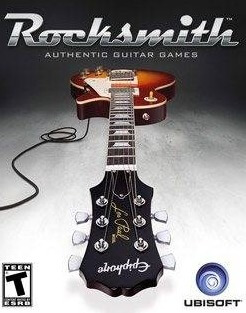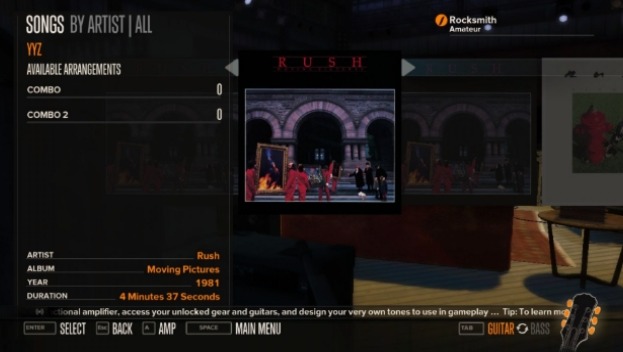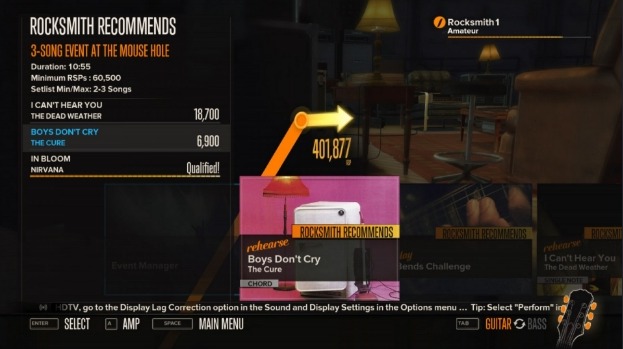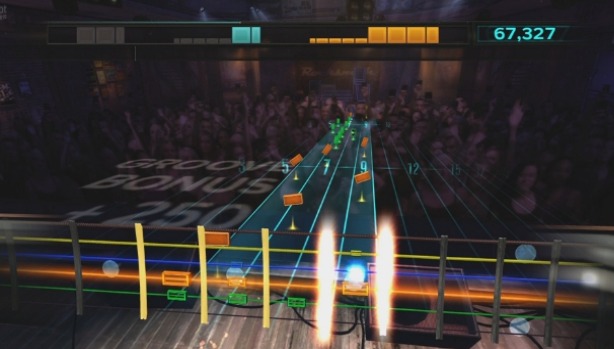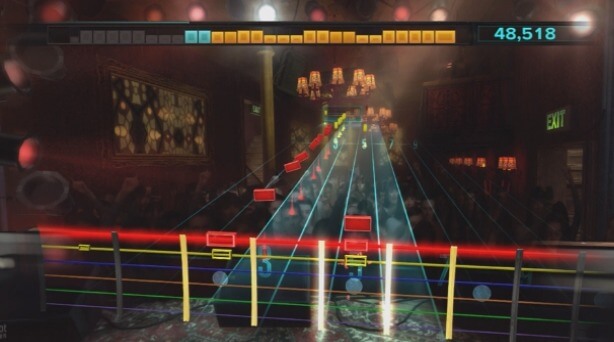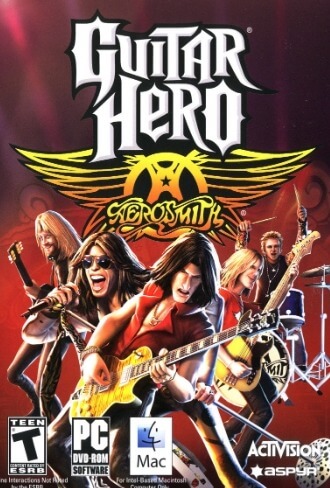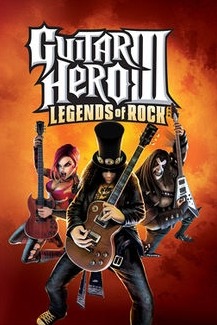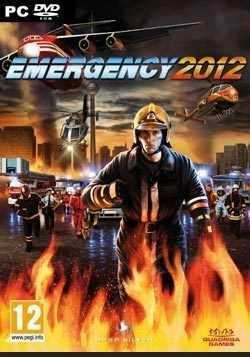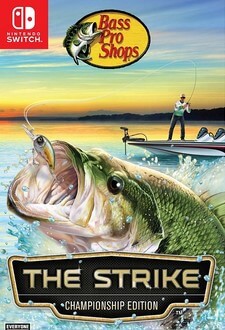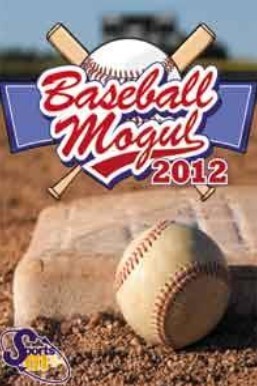In the normal game mode, playing with a song, the player is presented with a display that shows a representation of the guitar's fretboard, divided by numbered frets and colored strings. Notes represented as colored rectangles, matching the color of the guitar string(s) to be held down, move from the background to the foreground along numbered lanes reflecting the fret position. The notes turn 90 degrees at the moment that they should be strummed; additional markers are provided to help with timing of future notes. Additionally, the game shows an ideal position for the player's hand on the fretboard for the current segment of the song, moving this up and down as necessary. Lyrics to the song, if any, are shown in a karaoke-style under the background note pattern, but otherwise do not impact gameplay. Prior to playing any song, the game has the player check the tuning of the guitar.
A core feature of normal play is the game's ability to adjust the note density – effectively the difficulty – of the current song based on the player's performance to that point. Each song is split into a number of phases, and depending on how accurate the player is during a phase, a subsequent phase may provide more difficult note patterns. If the player's accuracy is not good during a phase, the subsequent one will fall back to a lower difficulty level. The player gets points for each note hit, and thus staying at higher difficulty levels can earn more points, but it is impossible for the player to fail a song. In some cases, if the player is missing too many notes, the game will pause the song to allow the player to readjust their hand position and make sure they strum the right note before proceeding. The game saves the last note density level that the player completed a song at, and will use that level at the start of the next play through that song.
As the player completes songs or other games modes within the career, they earn "Rocksmith points", similar to experience points, which unlock additional features. New venues, shown in the background of the main gameplay screens and having subtle influences on the sound of the guitar or bass, and new guitars and basses become available, as well as additional game modes. Some of these modes in the game are designed to help the player practice specific techniques. Technique Challenges, for both guitar and bass, give practice to some of the common tricks for the two instruments, such as hammer-ons/pull-offs, Chords, and Power Chords for guitar, and two-finger plucking and syncopation for bass. Each song can also be played in a Riff Repeater mode, where the player can select a specific section of song to practice and perfect, with options on controlling the speed and note density level. A "Guitarcade" becomes available after completing one of the Technique Challenges, which incorporates that technique into a mini-game element, such as "Ducks", a Galaga-like shoot-em-up, where the player must get their fretboard positions correct to fire on targets approaching in various lanes. Finally, the player can gain access to a free play mode, which uses amplifier modeling to simulate the sound of a guitar as played through stage equipment. The modeling supports a variety of virtual hardware components, such as effects pedals and amplifiers, which can also be unlocked through career mode. Each song includes a custom sound bank referred to as an "authentic tone" designed to make the player's guitar sound as close to the original guitar tone of the song as possible, though they can override these with the virtual pedals and amplifiers.
Reception
Rocksmith was released in the US on October 18, 2011, to mostly positive reviews. Aggregating review website Metacritic rated the PlayStation 3 version 80/100, the PC version 78/100, and the Xbox 360 version 77/100. Curtis Silver of Wired gave the game a 9/10, praising the intuitive nature of the note track and wrote that "Rocksmith is an amazing learning tool for the guitar. The eventual progression of rhythm games was to get to this point, where you are playing real instruments and actually learning how to play, rather than some sort of cartoonish emulation." Ania Kwak of GamingExcellence gave the game a 9.8, stating that "It's rare to find a game that encompasses a teaching tool as effective as Rocksmith, with virtually no negatives to observe, while still being enjoyable to play." Adam Dulge of PlayStation Universe praised the game and gave it an 8.5: "Rocksmith is an absolute must buy for anyone slightly interested in learning how to truly rock." Amy Flower of Gamesblip was very impressed, rating the game 9/10: "Rocksmith’s adaptability to your particular chops kicks arse. If you’ve never touched a geetaw you’ll probably squonk like a Sonic Youth b-side, but patience and dedication brings reward."
However, Jordan Mallory of Joystiq gave the game a mediocre 2½/5 on the day of its release, stating that "...Rocksmith fails as both an educational platform and as a rhythm title, despite its groundbreaking technological foundations." Ben Kuchera of Ars Technica said the game is "not terrible", but that it "fails as a way to learn guitar" due to lag, the automated difficulty adjustments, and the way the unlock system is implemented.
